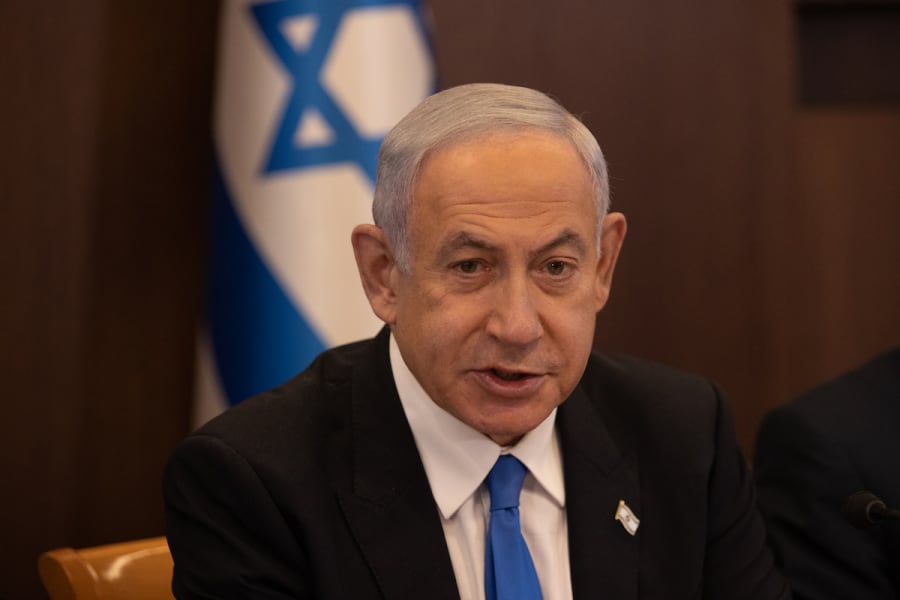Netanyahu denies Israel agreed to settlement freeze at Aqaba security summit

Israeli and Palestinian officials met in Aqaba, Jordan for a one-day summit on Sunday to discuss the deteriorating security situation, a meeting which resulted in conflicting reports.
Israeli National Security Advisor Tzachi Hanegbi and Shin Bet Intelligence Director Ronen Bar attended the Jordanian summit, which was intended to address and put an end to the ongoing tensions and violence in the West Bank, known as Judea and Samaria.
While the official joint statement claimed that Israel agreed to “stop discussion of any new settlement units for four months and to stop authorization of any outposts for six months,” Israel denied it agreed to such a freeze.
Hours after the statement was released, Israeli Prime Minister Benjamin Netanyahu tweeted that Israeli policy was unchanged.
“The building and authorization in Judea and Samaria will continue, according to the original planning and building schedule, with no change,” said Netanyahu. “There is not – and will not be – any freeze.”
Israeli Finance Minister Bezalel Smotrich, who advocates for an expansion of Jewish settlements, was even more blunt.
“I have no idea what they spoke about or not in Jordan. But one thing I do know: There will not be a freeze on the building and development in settlements, not even for one day [it is under my authority],” he vowed.
Hanegbi, a Netanyahu ally, also denied the official Aqaba statement by emphasizing, “There is no change in Israeli policy," adding that Israel would continue building more Jewish homes.
“In the coming months, Israel will authorize nine outposts and will approve 9,500 new housing units in Judea and Samaria,” he said.
“There is no settlement freeze or change in the status quo on the Temple Mount, and there is no limitation on IDF activities,” Hanegbi added.
Like most of the world, Washington is opposed to the expansion of Jewish communities beyond the green line, an unofficial designation between pre-1967 Israel and territories Israel captured in the Six-Day War from Jordan, Egypt and Syria.
Despite contradictory statements on Israeli settlements in these territories, Israel and the Palestinian Authority reportedly did reach “an agreement to establish a joint security committee” that would theoretically be able to curb the growing violence on the ground.
U.S. National Security Advisor Jake Sullivan welcomed the “commitments by the government of Israel and the PA to de-escalate and prevent further violence.”
However, Sullivan said the road to complete Arab-Israeli peace was still long.
“We recognize that this meeting was a starting point and that there is much work to do over the coming weeks and months to build a stable and prosperous future for Israelis and Palestinians alike. Implementation will be critical,” Sullivan said.
On Sunday, Jordanian King Abdullah discussed the regional tensions with Brett McGurk, deputy assistant to U.S. President Joe Biden and White House coordinator for the Middle East and North Africa.
The monarch reportedly urged relaunching negotiations between Israel and the PA, prompting Washington and the world to embrace a “two-state solution” with East Jerusalem as the capital of a future Arab state. Abdullah also warned against unilateral action that could undermine the already fragile situation on the ground.

The All Israel News Staff is a team of journalists in Israel.













